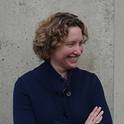Other
Armatures for Inclusive Placekeeping
(2021)
Abstract
As community-based design projects and charrettes continue to play an increasing role in the discourse regarding public space, the ideologies of inclusiveness that these participatory processes engender must be critically considered. Approaches that, on the surface, support community participation and engagement can run the gamut from top-down architects-know-best strategies to uncritical acquiescence to community desires. Developing a critical practice that works to contest conventional engagement processes requires the recognition that there is a dialectical relationship between social processes and spatial practices. Aware that normative models of creative place-making can result in gentrification, displacement and a sense of dis-belonging, “El Corazón / The Heart of Holyoke” project emphasizes an inclusive and socially just framework to create armatures for creative placekeeping (Bedoya 2013). A counter to placemaking, placekeeping has been described as “the active care and maintenance of a place and its social fabric by the people who live and work there” (USDAC 2016). This project is being developed in Holyoke, Massachusetts, a post-industrial city characterized by a large Latinx, mostly Puerto Rican, community. El Corazón’s placekeeping strategies focus on participation and representation, and draw on the assets of a community contending with significant challenges, among them historic ethnic marginalization and a recent influx of climate refugees. El Corazón’s goals include developing a flexible master planning process for artistic interventions that catalyze the community’s creative capacity to develop just and representative places of belonging. The work is proceeding concurrently with efforts to develop Holyoke’s Puerto Rican Cultural Area, a district that celebrates and makes visible the vitality of the significant Latinx population. Inclusive strategies have been developed from the outset by first forming an advisory group of local residents, leaders, and activists. This group shapes the project’s direction, vets approaches for inclusivity, and promotes cohesion among groups in the project area. One spatial strategy has been to create a flexible master plan that identifies over thirty sites for artistic interventions to be activated as funding opportunities materialize (Redaelli 2018, Markusen and Gadwa 2010). An associated design strategy has been to imagine interventions as armatures for community contributions that reflect the personal, social, and cultural meanings constructed by residents in their daily lives (Schwarz 2009). Another capacity-building strategy is the pairing of creating artistic works with hands-on workshops for residents to cultivate artistic skillsets and sustainable participation, while encouraging the community’s production of its own space (Bedoya 2014). The work will be realized over several years through emergent collaborations. For example, the first project implemented was the installation of banners featuring portraits of local leaders selected by the high school’s restorative justice group, who had identified inequities in representations of people of color in their community. For the second phase, we have crafted an inclusive process for selecting, and mentoring, local artists who are responding to community-selected themes in large scale art works. These more easily realized projects build trust and capacity, and set the stage for more intensive future phases. Through these tactics, the project is testing ideas for centering community voices while creating placekeeping strategies that support the community’s everyday patterns of being and belonging.
Keywords
- Participatory Design,
- Design Process,
- Urban Design,
- Placekeeping,
- Placemaking
Disciplines
Publication Date
2021
Citation Information
Brause, Caryn and Joseph Krupczynski. “Armatures for Inclusive Placekeeping,” Proceedings of the 109th Annual ACSA Meetingt, Louis, MO, 2021.
